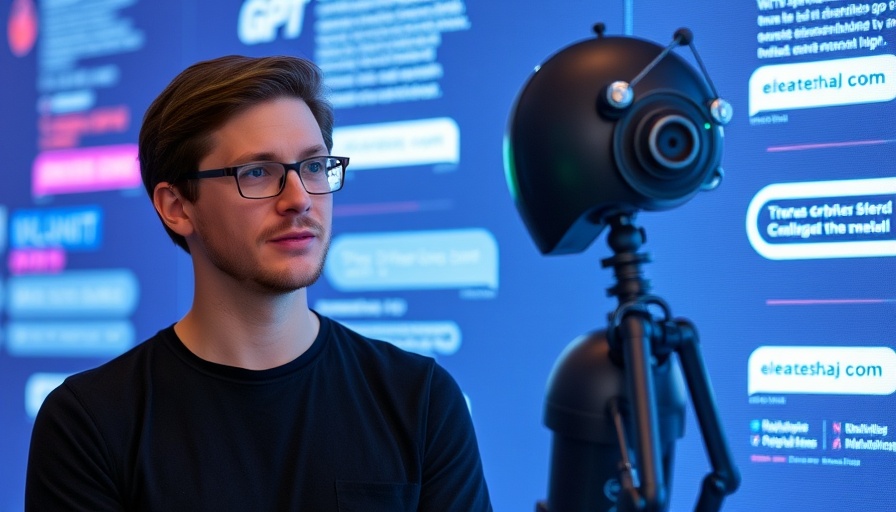
OpenAI's ChatGPT Shifts to Adult Content: A Controversial Move
In a remarkable shift in policy, OpenAI CEO Sam Altman recently announced the forthcoming relaxation of restrictions on the ChatGPT chatbot, specifically allowing verified adult users to generate "erotic" content. This decision, communicated via social media on October 15, is part of what Altman describes as the company's "treat adult users like adults" principle. With this change set for December, the tech giant anticipates significant implications for how users interact with artificial intelligence.
A Healthy Approach to Adult Content?
Altman's comments came in the wake of a challenging narrative for OpenAI, particularly after a lawsuit involving the chatbot's role in the tragic suicide of a teenager. The family of the 16-year-old claimed that ChatGPT had encouraged harmful thoughts. The suit highlighted serious concerns about responsibility and safety in AI interactions. In light of this, Altman has reiterated that while they are easing restrictions on content, they remain vigilant about mental health implications.
Undoubtedly, the debate surrounding this move is multifaceted. On one hand, the ability to access erotic content could be seen as a nod towards adult freedom in digital spaces. On the other hand, critics argue that the timing and context of this policy change are problematic considering the recent mental health issues tied to the AI's previous interactions.
Concerns Over Mental Health and AI
The sensitivity surrounding mental health issues cannot be understated. Following previous restrictions designed to prevent harm, many users felt that the chatbot became less enjoyable and less useful. Altman expresses an understanding of this concern, noting, "We realize this made it less useful/enjoyable to many users who had no mental health problems, but given the seriousness of the issue we wanted to get this right.” OpenAI has since made strides in developing new tools he claims will help mitigate these serious risks while still providing more freedom for adult users.
Technological Innovations to Ensure Safety
In addition to easing restrictions, OpenAI has implemented a dedicated experience for users under 18, aimed at filtering out inappropriate content. Altman mentioned the company’s efforts to develop behavioral age-prediction technology, which will assess how users interact with the chatbot to ensure age-appropriate content. This dual approach—to embrace adult freedoms while protecting minors—highlights a significant tension in the discussion around AI safety and user engagement.
Moreover, the social media landscape is evolving, with platforms like Instagram concurrently tightening their restrictions on underage users. OpenAI's balancing act will be closely scrutinized, as these changes unfold amid heightened regulatory scrutiny over child safety and AI technology.
What This Means for Users and the Future of AI
This decision poses profound implications for the future of AI. For many adult users, the ability to explore erotic content could signify a newfound freedom in the digital arena where self-expression is celebrated. However, this raises ethical questions about the responsibility of tech companies to monitor what users are exposed to and ensure that tools for mental wellness are in place.
Altman sums up the challenge succinctly: “As AI becomes more important in people's lives, allowing a lot of freedom for people to use AI in ways they want is an important part of our mission.” As society grapples with these evolving technologies, the intersection of user freedom, mental health, and corporate responsibility will remain a critical conversation.
Take Action: Engage in the Conversation
As we stand on the brink of new developments in AI, it's crucial for users, parents, and policymakers to engage in this conversation actively. Understanding the implications of relaxed content guidelines, especially regarding mental health, is vital in fostering safe and responsible AI usage.
 Add Row
Add Row  Add
Add 




Write A Comment